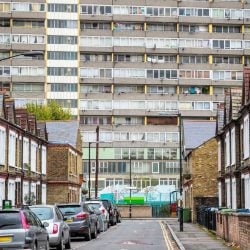Tag: PRS

Propertymark urges clarity on Section 21 abolition
Propertymark is calling on the Labour Government to provide clear details on how it plans to abolish Section 21 ‘no-fault’...

UK rents rise by 8.6% in the year to June – ONS
Average rents in the UK increased by 8.6% in the 12 months leading up to June – a slight dip from the 8.7% annual rise seen in...

£20bn boost for Build to Rent market as investors shift f...
The UK’s Build to Rent (BtR) sector is set for a £20bn cash injection over the next decade, according to a new report by Savills.

Scotland urged to match Labour’s housebuilding target
The Scottish government needs to mirror Chancellor Rachel Reeves’ recent proposal to build 1.5million homes in the next five...

Record rents for tenants outside London – Rightmove
High demand and a lack of available properties are pushing rents outside London to record levels, according to Rightmove.
It estimates...

Landlord groups call for ‘urgent’ return of t...
In the wake of the 4 July election, landlord groups say the next government must pass the Renters (Reform) Bill as a matter of ‘urgency’.

PRS is facing ‘a huge mismatch’ between suppl...
Confidence in the UK’s housing market is beginning to fall in the run-up to the General Election with one index highlighting...














